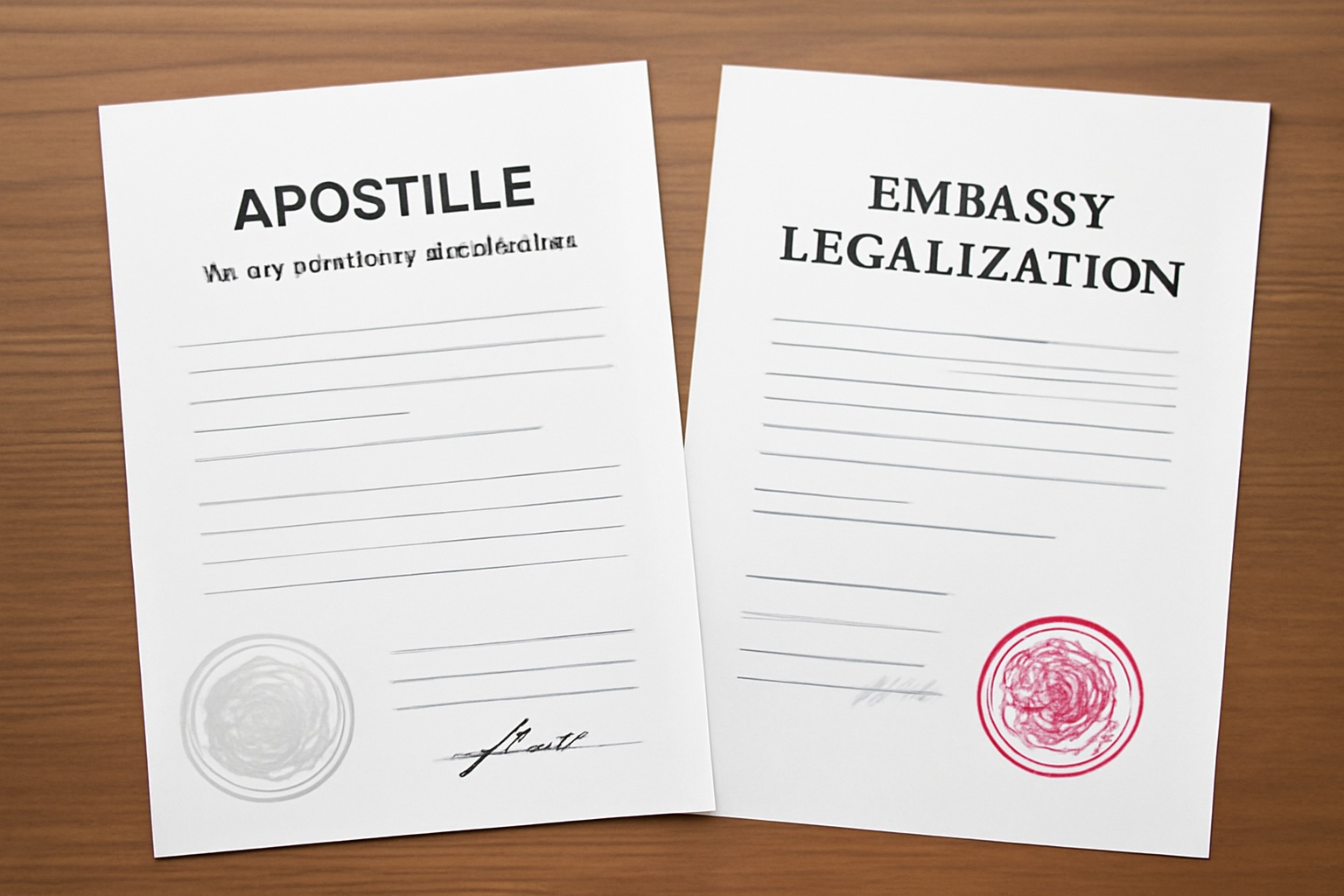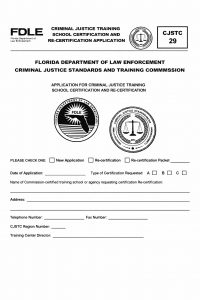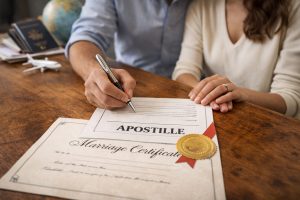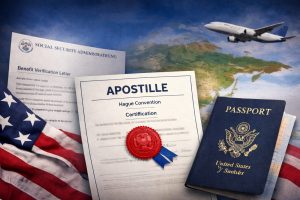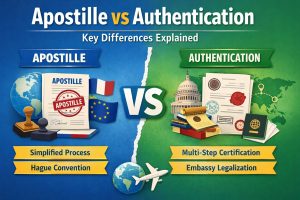Need your Florida documents recognized abroad? You’ll encounter two terms: apostille and embassy legalization. They both verify your documents for international use, but they’re not the same thing.
The difference is simple: where your documents are going. Right now, 125 countries accept apostilles; that’s the quick route. For other countries, you need embassy legalization, which takes longer and costs more.
Here’s what you actually need to know.
What Is an Apostille?
An apostille is a certificate that proves your document is real. It gets attached to your original document and confirms:
- The signature is from someone authorized to sign
- Their seal is legitimate
- The issuing office is recognized
It doesn’t verify what the document says, just that the signature and seal are authentic.
Apostilles only work for countries in the 1961 Hague Apostille Convention. This treaty created a standard way to authenticate documents internationally without jumping through multiple hoops.
When You Need an Apostille
If your document goes to one of the 125 Hague Convention countries, you need an apostille. Most European and Latin American countries are members. China joined in November 2023, Canada in January 2024, and Saudi Arabia in December 2022.
How Florida Apostilles Work
Get it notarized: If your document isn’t already official (like a government-issued birth certificate), get it notarized by a Florida notary. Documents without proper notarization get rejected immediately.
Submit to the state: Send your document to the Florida Department of State’s Apostille Section in Tallahassee. They verify the notary’s signature and attach the apostille certificate. Processing takes 2-5 business days.
Cost: $10 per document. Include a prepaid return envelope with your submission.
One thing to watch: your notary must have an active commission. If you use a mobile notary in Florida, verify their seal is current. The state can only authenticate active notaries.
Florida apostilles remain valid indefinitely, though some foreign authorities may ask for recently issued ones. If you’re wondering do apostilles expire, the short answer is no, but it’s always best to check the receiving country’s requirements.
Get Fingerprinting Services for Your Security Needs
What Is Embassy Legalization?
Embassy legalization is for countries outside the Hague Convention. It’s the apostille process with extra steps and extra waiting.
Your document goes through multiple verifications as it moves up the chain of authority. Each office stamps approval for the one before it.
Embassy Legalization Steps
1. Notarization: Get your document notarized by a Florida notary if it’s not an official state record.
2. State Authentication: Florida Department of State verifies the notary’s commission and issues an authentication certificate.
3. Federal Authentication: Many countries require verification from the U.S. Department of State in Washington, D.C. China, UAE, and Qatar typically need this step.
4. Embassy Legalization: The destination country’s embassy or consulate adds its certification. This makes your document officially acceptable.
Timeline: Florida state authentication takes under a week. Federal authentication runs 4-6 weeks. Embassy processing varies by country. Total time averages 2-4 weeks minimum, often longer.
Apostille vs. Embassy Legalization
| Feature | Apostille | Embassy or Consular Legalization |
| Used For | Hague Convention member countries | Non-Hague countries |
| Number of Verifications | State level only | State, federal, and embassy |
| Processing Time | 2–5 business days | 2–4 weeks on average |
| Cost | Lower | Higher due to multiple stages |
| Common Destinations | France, Italy, Mexico | UAE, Qatar, China |
Which Process Do You Need?
Check your destination country: If it’s on the Hague Convention list, get an apostille. If not, you need embassy legalization.
Verify document type: Personal records follow standard procedures. Corporate documents and patent applications may have special requirements.
Check translation needs: Many countries want certified translations. The translator can’t notarize their own work—Florida doesn’t allow it.
Plan your timeline: Embassy legalization takes weeks. Apostilles are faster but still need a few days for processing and mail time.
Florida Document Tips
- Use certified copies for vital records. Get them from the Bureau of Vital Statistics.
- Federal documents need federal authentication. FBI background checks go through the U.S. Department of State, not Florida.
- Your notary’s commission must be active when they sign. Expired commissions can’t be verified.
- Factor in mail time to Washington, D.C. for embassy legalization. Add at least a week for shipping.
Mistakes That Cause Delays
- Submitting documents without notarization gets them rejected immediately.
- Assuming all countries accept apostilles. Dozens of countries still aren’t part of the Hague Convention.
- Using photocopies instead of certified originals won’t work.
- Not planning enough time. Embassy legalization can take six weeks or more.
The Bottom Line
Apostille and embassy legalization both verify your Florida documents for international use. Which one you need depends on where you’re sending them.
Hague Convention countries (125 total): Get an apostille from the Florida Department of State. Faster and simpler.Non-Hague countries: Embassy legalization with multiple steps. Takes longer, costs more.
Start with proper notarization. Get your documents right the first time to avoid rejections and delays. Whether you’re sending birth certificates to Spain or business documents to Dubai, knowing which process applies saves you weeks of waiting.


